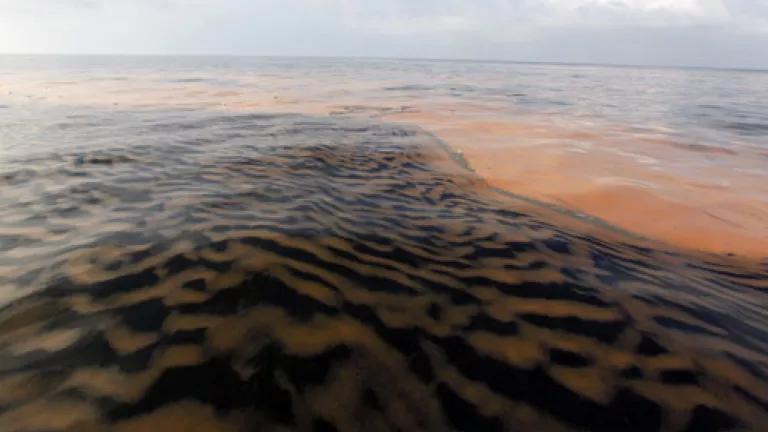
One year after the largest peacetime oil spill in history, I am struck by how little our nation has done to reduce our oil dependence. The BP disaster killed 11 men. It oiled more than 1,000 miles of coastline and created a slick the size of South Carolina. It also cost fishermen $62 million in lost sales and more than $1.5 billion in lost tourism revenue to date.
Yet one year later we are just as dependent on the stuff as we were before the BP spill—before America learned some of the dirty details about the risks energy companies were taking and the corners they were cutting in order to quench the nation’s thirst for oil.
The BP spill will be back in the headlines this week, and we will hear once again about the bad judgment calls and lax government oversight that led to the blowout.
But talking about the disaster without reflecting on America’s oil addiction is like talking about a lung cancer epidemic without examining cigarette smoking. We have to look at the root causes if we want to prevent another oil catastrophe from pummeling our coastal communities.
Our nation can’t get off of oil overnight, but solutions exist right now that can dramatically reduce our dependence. Cars that can go farther on less gas, more transit choices, sustainably grown biofuels, and other technologies could cut our oil exports by nearly in half in the next 14 years. They would also save drivers money, generate jobs, and protect vital ecosystems like the Gulf of Mexico.
Smart government policies could promote these solutions. But it is a testament to the political influence of oil companies that these policies have not gained more ground.
Congress has yet to pass a single law related to the BP disaster. Instead, the House is getting ready to vote on three bills to accelerate offshore drilling permits, sidestep environmental laws, and open new waters to drilling. In other words, they want to make it easier to drill, not safer.
The week before, the House passed a bill sponsored by Representative Fred Upton (R-MI) designed to block the Environmental Protection Agency from limiting carbon pollution—a move that would put at risk 18 billion gallons of oil savings and $58 billion in consumer savings from the current clean cars standards.
These measures would take America backward. Yet they have tremendous support from the oil and gas industry. Representative Upton and his Senate counterpart Jim Inhofe (R-OK) met with lobbyists from the American Petroleum Institute and other industry groups in January asking for their support for blocking the EPA and the clean car standards.
“The feedback we got was ‘hey, great, go for it guys,’” one Republican aide told POLITICO. “And we pretty strongly told them we do need your help to get this done. And when we walked away from the meeting the feeling was we got that.”
This is just one example of how the oil and gas industry works to stymie cleaner, more sustainable technologies. As I explain in my book, In Deep Water: The Anatomy of a Disaster, the Fate of the Gulf, and How to End our Oil Addiction, the oil and gas industry has spent $1 billion to lobby the U.S. Congress and the administration in Washington since 1998. That includes a record $168 million in 2009 alone.
That doesn’t include hundreds of millions of dollars the industry has spent lobbying officials in Texas, Louisiana, Alaska and other states. Nor does it cover advertising intended to influence public opinion on topics such as global climate change, offshore drilling, tax policy, and fuel efficiency standards for automobiles.
I recognize that corporations want to protect their bottom line, but the oil industry is using its political muscle to thwart competition and keep America hooked on its product.
It’s also trying to gain access to even more deepwater drilling. The new bills introduced by its allies in Congress totally disregard the National Commission on the Deepwater Horizon Oil Spill and Offshore Drilling recommendations calling for stronger government oversight and greater industry focus on safety.
Is this the direction we want to head one year after the worst oil spill in American history? Do we really want the industry that devastated Gulf businesses and endangered marine life to bully us into more concessions and more dirty fuel?
We don’t have to cave in. We can fight for the safer, cleaner solutions that will put Americans to work and save them money in transportation costs. And we can recognize that reducing our oil dependence is the only real response to oil disasters.
